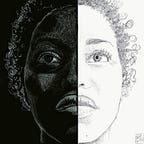My View: Workplace has critical role in #MeToo Movement
A TRAUMA INFORMED APPROACH TO THE ECONOMIC JUSTICE NEEDS OF SURVIVORS
We know that many, if not most, people do not report domestic violence for fear of the consequences. One way to protect ourselves and one another is to create a work environment where the evaluation of a person’s character goes beyond just their professional qualifications. We need to protect survivors’ economic and human rights.
I would presume that many people have felt the stings of injustice in our changing country. Whether its gun violence, economic inequality, the climate crisis, immigration policies, the flailing Trump Administration, or the wave of hate that has filled our homes and our streets, we are impacted people — whether we accepted it before or not.
Within these movements for change, the #MeToo movement has stood out as a modern movement for women’s equality and for people who cause harm with impunity. It has also inspired a public sounding board for survivors to be heard. My charge to us is to think broader. Just hearing our stories isn’t enough to save lives.
I am a survivor of violence and emotional abuse. My perpetrator poses as a community leader and hides or minimizes the harm that transpired. I know I am not alone in this. I did not report the incidents that continue to leave stains on my memory and life. I had a career to think about. I had responsibilities. I didn’t see a way that I could be protected if I reported. It felt like the process would further isolate me.
What is unsettling is that the #MeToo movement has mostly fallen upon just naming high-profile political figures and celebrity perpetrators. This is important, but we need to think systemically about how we prevent harm and protect one another. What about the workplace? How do we support survivors at work?
Dr Sandra Bloom created The Sanctuary Model for people centered approaches for organizational development. The four pillars of their model are Knowledge, Values, Language, and Practice. (See image below) This is one of the strongest processes I’ve found that show whats possible.
While, Bloom’s team focuses on a trauma informed approach, I would also include an economic justice lens. Protecting survivors ability to work can further their independence and ability to remove themselves from harmful relationships. Protecting survivors at work also includes policy changes within HR departments. Currently, a lot of these questions are coming up in Diversity, Equity, & Inclusion work. Consultants are hired from a variety of backgrounds to steer groups in a more equitable direction.
These efforts are highly focused on creating safe spaces for people of color, women, the LGBTQ community and other people who are marginalized. These are efforts to strategically move silenced voices to the center. I believe this should also include efforts to support domestic violence survivors and the removal of their perpetrators from our workplaces.
Domestic violence is about power and control. Allowing their harm to be unseen and unchecked only validates their misdirected pain that is projected as wounds on others.
Many of us work alongside perpetrators of domestic violence, sexual assault, and child abuse and do not know it. How can public and private sector organizations protect their employees if they are not even considering the impact of their own staff?
I urge us to consider asking more questions and including survivors of violence in our equity work.
How do we operationalize the need to include community harm (regardless of legal action) as a basis of a character standard for our colleagues? When perpetrators are unchecked, they don’t heal the wounds they have that cause harm. Not intentionally screening for this hurts everyone.
Are we willing to have perpetrators working alongside perpetrators, unchecked? Do we want them teaching our children and leading community-based organizations without any accountability? Are we willing to have perpetrators of abuse giving speeches on justice while they go home and diminish someone’s personhood with their hands? I am not.
Violence is ever present and it hides. It rests in the eyes of children too afraid to speak and the broken hearts of partners who’s lives are immeasurably changed. Violence lives next door. The longer we wait to hold perpetrators accountable, survivors will not have justice in or outside of the workplace.
It reaches the work environment through many avenues. Human resources departments are often asked to review leave material for domestic abuse survivors and provide documents related to civil or criminal court cases. Sometimes survivors are unable to express the truthful reason for their leave because legal documentation would alter their ability to make choices for their family and economic survival. Employers are allowed to protect their employees.
Motivation can be found in the statistics.
These numbers are just whats reported. We have to think broader about prevention and protecting people knowing that most people don’t report. How can we use what we know from what’s reported to create safer work environments?
Sometimes when you can’t go home, work is all you have. If you can’t be safe at work, where are you going to go? Unless we are proactive, we will continue to cripple families impacted by violence. An in-depth plan for sustained economic justice for survivors is needed.
I invite state, county, and city agencies to create hiring and recruitment practices to identify potential community harm as they hire people. Private sector organizations may be able to make these changes a bit faster, as public institutions can have a long process for procedure changes.
If equity is about creating safe spaces from all forms of oppression, then any history of violence, not just a criminal record, needs to be a part of the hiring and potential retention. I urge us to bring these concerns forward and include the needs of survivors to the forefront.
Originally published at https://pamplinmedia.com on April 17, 2018. (Substantial edits were made for this post.)
